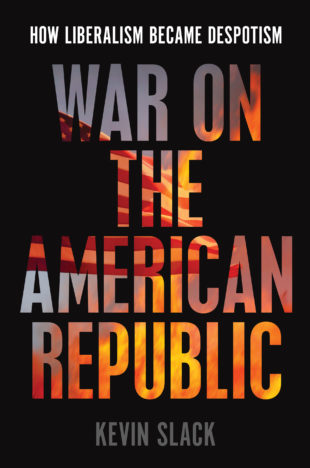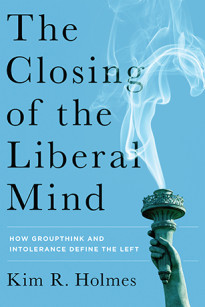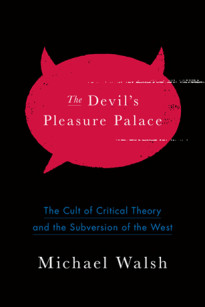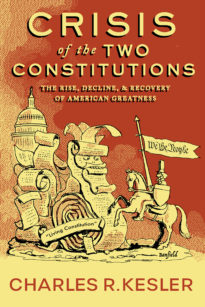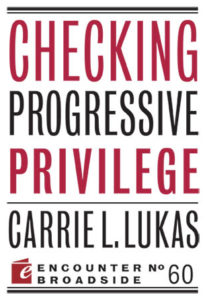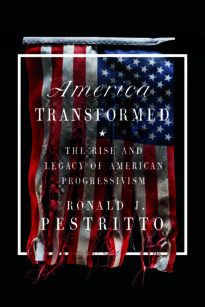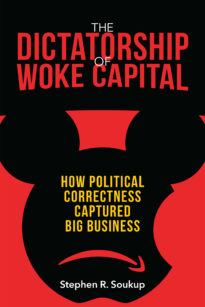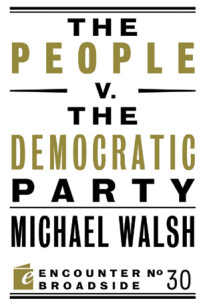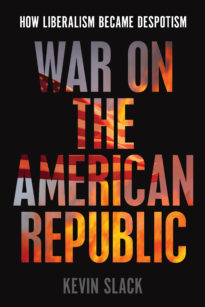Americans look around at their country and no longer recognize what they see. The very category of citizenship is denied. Millions of illegal immigrants stream across an unprotected border and are escorted into the interior of the country, where they receive government welfare. Americans have learned that all their rights as citizens can be removed, not by elected representatives but by unelected bureaucrats claiming emergency powers. Under the authority of health, which used to mean human flourishing, Americans were told they must reduce their lives to bare preservation. They watched their demoralized neighbors become habituated to wearing face masks and line up for endless experimental vaccines. Journalists who disagreed were censored. The assistant secretary of health and the nation’s first female admiral, report state media, is a man who, declaring himself a woman, had his own penis removed. Little girls in California schools are told to question their genders and then, without the consent of their parents, are injected with irreversible, sterilizing puberty-blockers and courses of testosterone. Mainstream media outlets like USA Today run stories to destigmatize pedophilia. When polled, surprising numbers of Democrats approved of fines (55 percent), home confinement (59 percent), and prison (48 percent) for those who resisted or publicly challenged mandates for masks and COVID vaccinations. Twenty-nine percent approved of removing their children. Under the authority of anti-racism, Americans see their leaders promote vicious anti-white racial hatred, justifying a new Jim Crow for whites. For an entire year Americans watched Black Lives Matter and Antifa rioters burn great American cities, desecrate ancient churches, tear down historical monuments, break all laws, and injure law enforcement, only to be told that the riots were peaceful and the rioters had a right to destroy others’ property and livelihoods. The government creates record levels of inflation and disrupts supply chains, and Americans are told to embrace the new lower standard of living.
In sum, the ideas that most Americans had tolerated as absurd and relegated to academia—transgenderism, anti-white racism, censorship, cronyism—are now endorsed and carried out at the highest levels of political power. What formerly were the ideals of a radical Left are now the policies of an entire cosmopolitan class that includes much of the entrenched bureaucracy, the military, the media, and government-sponsored corporations. It seems there is little that can be done. While 70 percent of Democratic activists—those who lead the party—express shame of their own country, the sentiment extends to Republicans. Leading conservative intellectuals attack the country’s founding traditions and principles as a failure to the point of rejecting republican principles altogether. Among other conservatives, there is a general uncertainty as to what republican principles even are. As a professor of politics at Hillsdale College, perhaps the most politically conservative college in the country, I am often asked by my students and visiting friends of the college: “How did we get here?”; “What intellectual and cultural changes took place to bring us to this point?”; “What recourse do we have?” This book is my answer. It is written for them. While I am not a political insider, nor do I aspire to be a pundit, this book is also written in the spirit of the times. It is filled with both facts and controversy. It intends to be iconoclastic, especially for its conservative audience in a world where the old conservative gods are dead. Those gods, this book hopes to show, were newer in their construction, and they are experiencing a timely demise. And despite this book’s dour implications, I hope the reader will share in some of its optimism. History is for the living, and there is a rising generation of young conservatives who, in the face of the ruling class’s incompetence, corruption, and degeneracy, is finding much worthy to conserve for all Americans.
